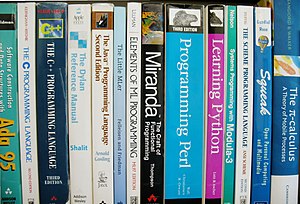(Article continued from part 6)
Recall the story of the enthusiast and the entry-level dSLR photographers trading cameras. While I admonished against the danger of buying too much of a dSLR, I glossed the obvious problem: the entry-level photographers had a problem shooting the professional dSLR. How do you get there from here?
The answer is simple: learning.
Inside every dSLR is a complex computer and that computer makes decisions for you. This is true in both the entry and pro dSLRs: the difference is the entry-level cameras are configured to make more decisions for you. The trick is to realize that the entry-level cameras give you access to the pro-level settings, but you have to be willing to leave the safety of automation in guides, scenes, and McDonald’s-style graphical menus.
I’m not a snob. and the computer makes some pretty smart decisions. It’s just unless you are bumping your head against the decisions it makes, you’re limiting yourself in the sort of photography you can do.

Marie at The Corner
The Corner, Mission, San Francisco, California
Nikon D3, Nikkor 50mm f/1.4G, SB-800
1/20sec @ f/3.5 iso3200, 50mm
This series had an inside joke. While it is a discussion of dSLR cameras, every photo was supposed to be taken with a non dSLR camera. Unfortunately, .
In this case, you can’t take this photo with the scene modes in your dSLR. Yes, the “night portrait” mode might get you close, but you’d need to pump the ISO even further, even more, , and
If you mouseover the image, you’ll see the original. My camera broke and decided to only record in TIFF that day, so I couldn’t have even depended on the RAW mode safety net for dynamic range and white balance recovery.
Even if we restrict ourselves to discussion of , we are still left with setting shutter speed, aperture, and ISO. These three have a complementary relationship and are associated with different tradeoffs. Scene modes in your camera make the decision for you, but unless you know what that decision is and when it is wrong, you can’t really grow as a photographer.

A plethora of learning materials exist out there. Here are a few of the ones I’ll be mentioning in this article.
Continue reading about books, videos, and classes after the jump


